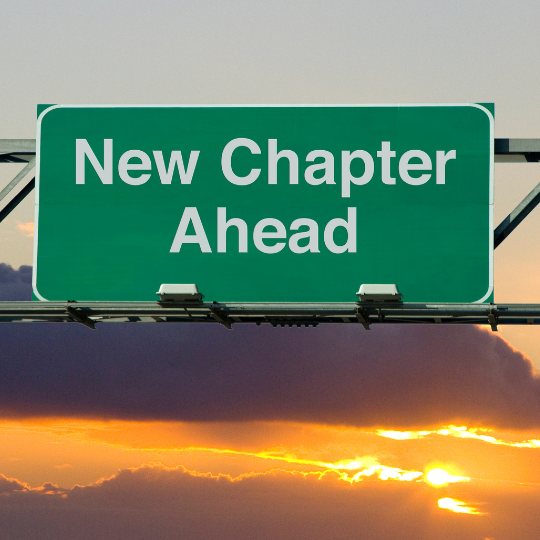Dancing With Cancer: Facing Fear, Fasting And Calorie Reduction
 So. You’ve been diagnosed with cancer and now you’re struck with how helpless you feel. Perhaps you’re so afraid that even though you know you should be hopeful, you’re stuck in a place of absolute terror. I understand. I really do. I do, however, need to be clear about this: Cancer is somewhat akin to extreme mountaineering. If you’re high up on Everest or K2 and you freeze up from fear, you will die. The same holds true for you if you allow fear to paralyze you in your “climb” to health. The penalty for allowing fear to rule your life is severe. Don’t let it be you.
So. You’ve been diagnosed with cancer and now you’re struck with how helpless you feel. Perhaps you’re so afraid that even though you know you should be hopeful, you’re stuck in a place of absolute terror. I understand. I really do. I do, however, need to be clear about this: Cancer is somewhat akin to extreme mountaineering. If you’re high up on Everest or K2 and you freeze up from fear, you will die. The same holds true for you if you allow fear to paralyze you in your “climb” to health. The penalty for allowing fear to rule your life is severe. Don’t let it be you.
Overcoming Fear Is Essential
In the dance with cancer, people often target cancer as the enemy. Cancer is NOT the enemy, I assure you. Cancer is a symptom of other problems in your body. We get rid of the symptom that is cancer by restoring balance to the systems in your body. In doing so, we enable the body itself to clear the cancer. That’s what bodies naturally do on a daily basis when they’re healthy and in balance. Unfortunately, however, the ability to restore balance is effectively blocked by the 1-2 punch that is fear.
I wrote a bit about fear in the last article. That said, I think it’s worth further discussing the importance of removing fear from your healing journey. Fear is a strong stressor on the body. Chronic stress is one of the factors that help create a cancer-promoting environment in the body in the first place. To help put things into perspective for you, let’s take a look at how stress affects the body.
It’s tempting to think of stress as being all in your head, but nothing could be further from the truth. In the mind-body connection, there is no separation. As we experience mental and emotional stress, we trigger the fight/flight response. An important aspect of the fight/flight response is the suppression of our immune system, the shutting down of our digestion and the production of cortisol. This is the great Triad of Doom for a body that is struggling to heal itself.
The body has a number of stress hormones that include cortisol, epinephrine and norepinephrine. In short bursts, these hormones are hugely beneficial in enabling us to deal with emergencies. If you’re unfamiliar with the name epinephrine, you may be more familiar with its other name: Adrenaline. Epinephrine’s primary role is to increase certain bodily functions for our fight/flight response. Among epinephrine’s targets are: Increased blood flow to muscles, increased heart rate/output, dilated pupils and elevated blood sugar.
Norepinephrine works alongside epinephrine to stimulate the body’s alertness and ability to react quickly. It acts to accentuate our ability to focus concentration, promotes the release of glucose to the blood stream and reduces blood flow to our digestive tract. And cortisol? While it has a number of functions, we’re most concerned about its role in suppressing the immune system during stress response.
All these body changes are great in the short term when faced with a dire emergency. Over time, however, the strain on the body is significant. The very last thing you want when you’re attempting to heal from serious illness is a suppressed immune system. It’s vitally important that your immune system be functioning as well as possible. For that, you need to release your stress.
Study The Problem Domain
The best ally in overcoming fear is knowledge. Being intimately familiar with the mechanisms at work in your body will empower you with a DEEP KNOWING that your body is capable of healing itself given even a small chance. Fear is mostly a product of ignorance run amok with an ego that loves to tell tales of doom and gloom. You can block that nonsense by knowing much of what cancer actually is.
The truth of the matter is that cancer isn’t mysterious and its rise to prominence in modern life isn’t due to some bizarre change in life or in some imperfection in our bodies. Cancer is ALL about uncontrolled stressors. Knowledge about a topic removes ignorance. Removing ignorance removes unnecessary emotional charge. Fear is all about emotions running away with themselves.
In case it seems too big a task to understand how your body heals itself, let’s take a moment to give a short-and-sweet definition of what cancer is:
Cancer is a group of diseases involving abnormal cell growth with the ability to spread to other parts of the body. Cancer is found alongside chronic inflammation, chronic stress and suppressed immune function.
There’s more to it than that, but these two sentences really are enough in the grand scheme of things. The correlation between inflammation, stress and suppressed immune function cannot be overstated and should not be ignored. It is in this correlation that we find the solution to our problem!
And The Solution Is …
If we remove the causes of chronic inflammation, chronic stress and suppression of our immune function, the body will assuredly recover its balance and WILL begin the process of ridding itself of cancer. Step 1 in this process is freeing yourself from the grip of fear.
When it comes to fear vs. a problem, I like to think in terms of a surgeon called to an operating theatre to work on an emergency. The patient is on the table and things might well be dire. Consider, if you will, how you want your surgeon to feel. Do you want your surgeon to be filled with terror that the patient might die and that the surgeon may not be able to save his/her life? Or do you think the surgeon should be confident of his/her skills and work from a place of knowledge and skill to save the patient to the best of his/her ability?
I choose the latter.
When it comes to healing from cancer, you’re BOTH the surgeon and the patient. It’s your task to approach your healing from a place of confidence. You must have unfailing and unshakeable confidence in your ability to heal. Your body has evolved over millions of years to know how to clear away abnormal cells. It hasn’t forgotten, but the presence of cancer does mean that your body’s ability has been compromised. So, be a good doctor (and patient) and set about putting your body’s systems back in good shape.
Laughter Is Great Medicine
If ever there were an opposite to fear, it would have to be joy. Fill your day with laughter, good friends, love, a connection with Source and every possible combination of good/healthful activity you can imagine and muster. Remember, cancer is not your enemy. Your enemy is fear itself. Just as darkness is nothing more than an absence of light, fear is nothing more than the absence of joy. Fill your day with joy and fear has no foothold.
Make no mistake. You can heal your life. Understand, however, that this healing is not a gift from God or some other power. It isn’t a gift from angels or healers or even doctors. Healing is something YOU do for you. If you have no ideas how you might improve your health, find any way possible to laugh as much as you can during your day.
Pretending Helps, Too!
One thing you might not know is that pretending to be happy — smiling even when you’re terrified — will help! Go to the mirror and look at yourself. No matter how badly, sick or scared you may feel, SMILE at the image of you in the mirror and loudly proclaim, “Thank you for this healing!” As you smile, note that even though your mental chatter will being trying to hold onto negativity and fear, you will begin feeling better. Seriously. Try it! (What have you got to lose?)
The more you smile, the more you’ll feel those feel-good hormones rushing throughout your body. And you know what? Those feel-good hormones are undoing all the damage that the stress hormones were causing. If you smile and thank YOURSELF for the healing you’re experiencing 100 times per day (which really isn’t a lot over the span of 16 waking hours), you’ll soon find yourself no longer pretending to feel better. You’ll feel better. You’ll be healing. And you’ll start noticing greater and greater changes.
Fasting And Calorie Reduction
One of the best-known ways of restoring balance to our bodily systems is fasting. Fasting has been used for millennia as a means of purification and it isn’t just New Age woo-woo, either. Fasting triggers a number of incredible functions in the body that promote healing and recovery. And alongside fasting is its baby brother, calorie restriction. Put the two together and that cancer in your body does not stand a chance.
When we look at the metabolism of cancer cells, we see that cancer requires a glucose-rich environment in which to thrive. From a dietary perspective, that means one must be working from a glucose-based metabolism. Our bodies are wired to run glucose first and fall back to a fat-based metabolism after the glucose runs low. In our modern-day agricultural diets, however, we get so pumped full of carbohydrates from grains in breads, nan, rice and cereals plus processed sugars in soft drinks, junk food and desserts that many people NEVER reach a state of dipping into their fat stores for energy. In such a body, cancer cells will have all the fuel they need to thrive and spread.
If I were to suddenly find out that I had cancer, my first response would be fast. Dealing with a serious cancer and for somebody who is overweight, fasting for 7-to-10 days would probably be advised (after consulting with a physician, of course). Fasting for more than three days causes the body’s glycogen stores to be depleted and the body will be forced to resort to its fat stores for energy.
Once the body has been fuelling itself from fat stores, it begins important processes such as dead-cell clean-up and protein scavenging. Apoptosis (programmed cell death) is just one of many functions in the body that are normalized by fasting. In a food-plenty diet that never triggers a fasting/famine state, cell death is delayed even for cells that have begun showing abnormalities. When we begin to experience cycles of fasting, we trigger apoptosis, which destroys cells that are damaged in some way. Along with the apoptosis is the dead-cell clean-up and protein scavenging.
Fasting has the additional benefit of offloading toxicants and toxins from our fat cells. As our fat cells dump lipids into the blood stream for conversion to available energy, unwanted waste is also released, which then is processed for elimination by three mechanisms: Respiration, perspiration and urination. Because of this detox process, it’s extremely important to stay well hydrated. As well, in case one is in an environment where one is perspiring heavily, it’s important to rebalance electrolytes with natural salt (NOT table salt!). I like sea salt, but tend more towards Himalayan rock salt for its sulphur (good for the heart).
Once the initial fasting is done, it’s time to begin eating again. Alternatively, in cases where long fasts would be considered unhealthy, this is the first step. A combination of intermittent fasting with calorie restriction keeps the body dipping into its fat stores daily, which now keeps the body squarely on a fat-based metabolic system. The benefit is a dramatic reduction in inflammation, regular detoxification and the potential to completely reverse the effects of metabolic syndrome, including Type II Diabetes.
The essential ingredient in intermittent fasting is to restrict your meals to a 6-hour window every day and to keep your caloric intake to a minimum. The ideal here is to focus on nutrient-rich meals that are dense in minerals and vitamins, but light on calories. By eating one or two small-to-medium meals in a narrow window of time, we put ourselves into regular cycles of temporary fasting, but equally offset those fasts by extremely healthful recovery meals.
It’s important for me to re-emphasize the role of low carbohydrates here. If we’re accustomed to gorging on cereals or rich curries, we will not reap the benefits from fasting. In fact, a rebounding cycle of fasting and carbohydrate-rich recovery meals can actually cause us to gain weight, as the body easily replenishes its glycogen stores and pads the rest of our body with fat once again. The goal is to regularly have the body reach a state of ketosis, and that means that we want to employ a low-carbohydrate/moderate protein diet.
As long as we’re eating nutrient-dense foods, we can maintain a long-term intermittent fasting/recovery meal paradigm. The calories we consume are not as important as the nutrients. As long as we get sufficient vitamins, nutrients and minerals from our diet, we can survive for months on reduced caloric intake with few to no ill effects.

Healing Is A Spiritual Journey
All healing is self-healing. All healing is part of a path that we must walk. When we release our fear and trust in our innate ability to heal, we empower ourselves to reach our true potential. It’s all too common to give away our power to somebody else, but that’s something you should stop here and now, today.
Cancer gets beaten each and every day. Most people get cancer and heal from it without even knowing about it. If you’re facing a serious case, it’s only because your body was by some means allowed to get far enough out of balance that it couldn’t rid itself of the cancer before detection. Instead of worrying about the cancer, which is a symptom of systemic imbalances, strive to restore balance to your systems in all areas of your life.
With the information presented here in this and the previous article, you have incredible power to effect positive change. Exercise, sleep, vitamins, nutrition, outlook, joy and fasting are all magnificent tools that will assist you in healing your life. As you heal your life, you will heal yourself.
Much love. Namaste.
trane



Leave a Reply